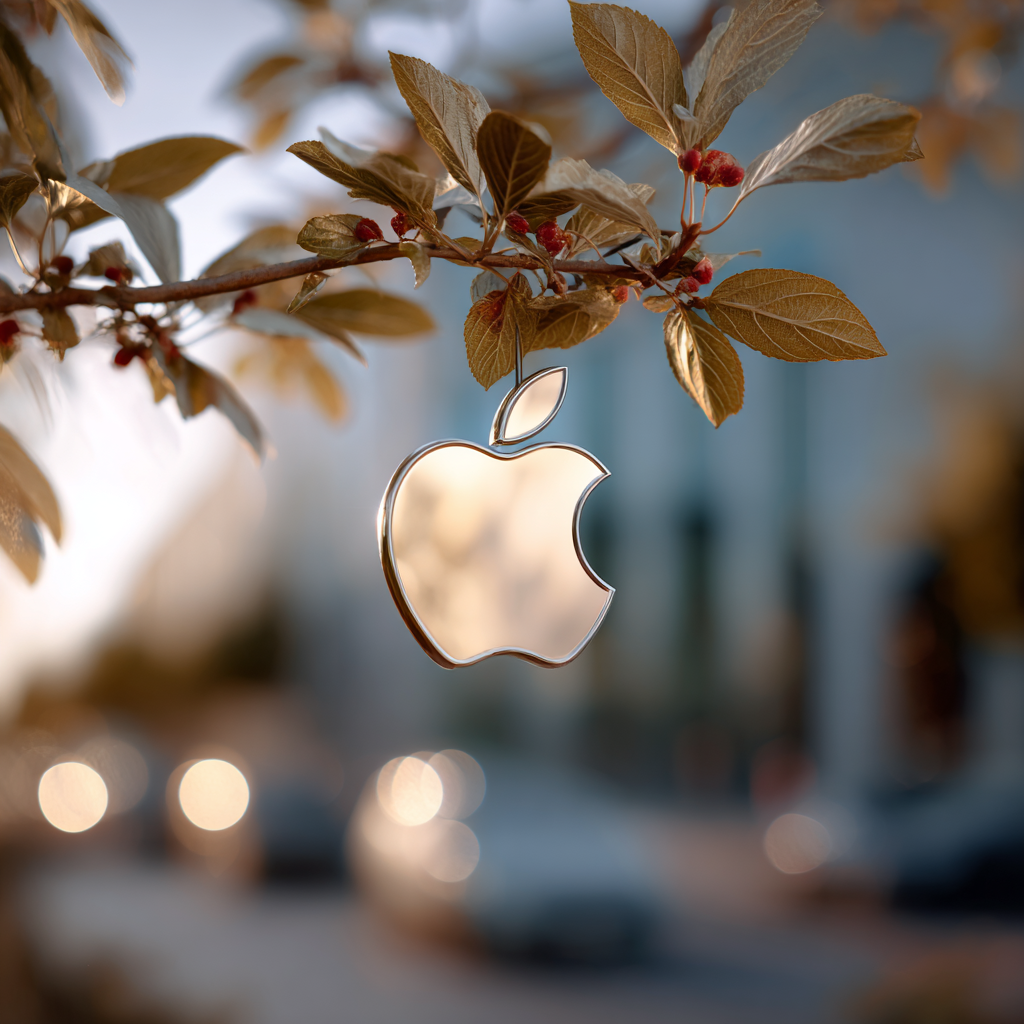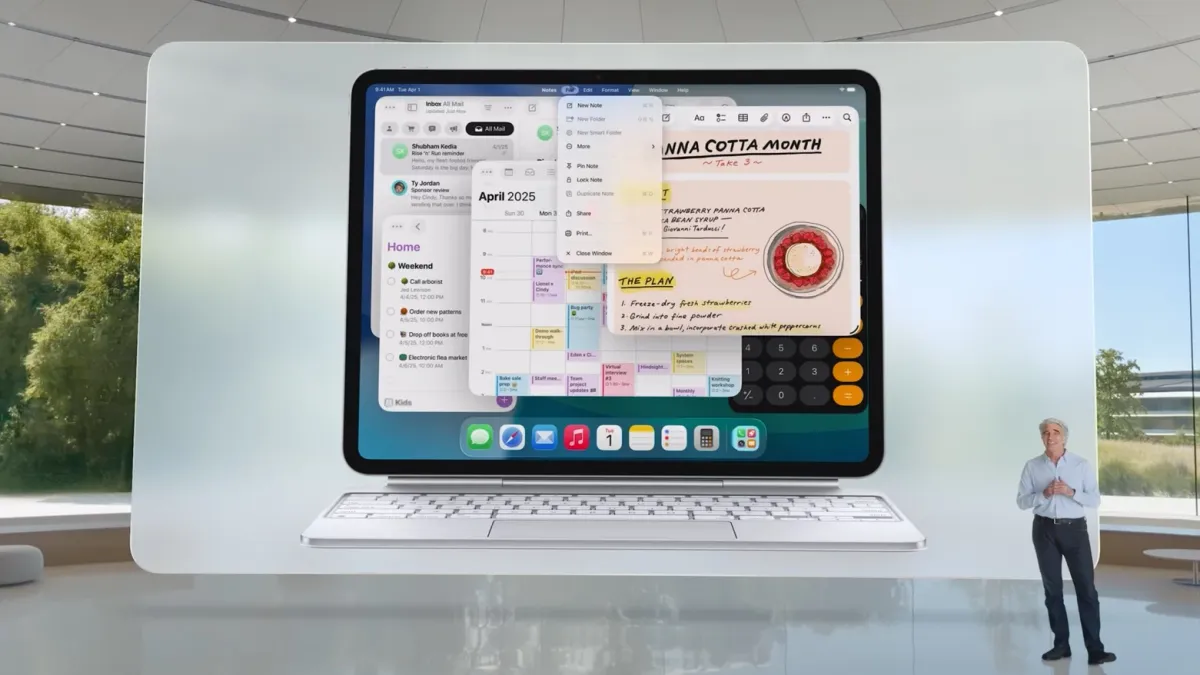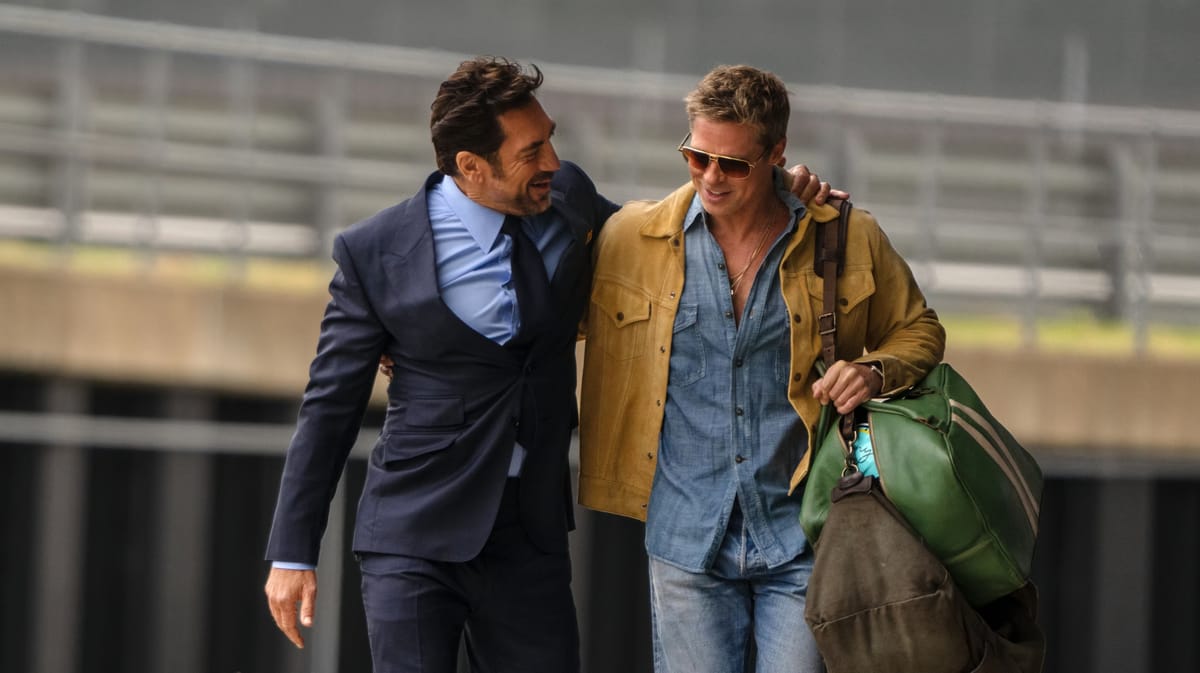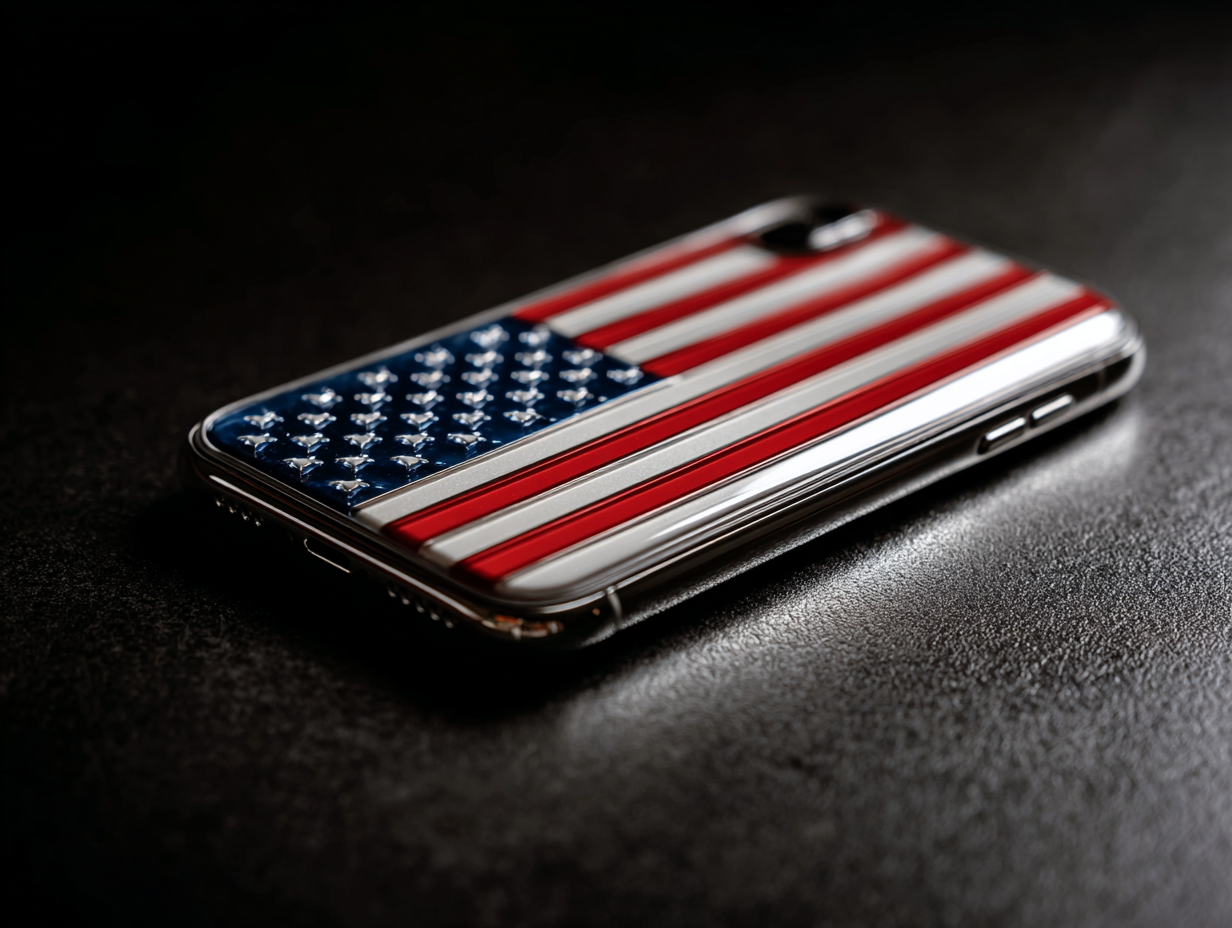Apple is Ripe

The last time Apple had a COO transition, it was a big deal. In 2015, Tim Cook elevated Jeff Williams to the role, which had been vacant since 2011, when Cook himself vacated it to become CEO following Steve Jobs resignation over his health concerns. With Williams appointment, it seemed as if Cook had found his own Tim Cook. Not only someone who was able to steward Apple's ever-increasingly-complex supply chain, but also make many more of Apple's trains run on time. And, presumably, someone who could step in for Cook if, as was sadly the case with Jobs, he was no longer able to perform his CEO duties.
This made Williams the heir-apparent to Cook. The only problem there was that they were quite close in age, with Williams just a few years younger. So in any normal retirement situation for Cook, Williams was likely to be around that age as well.1 As it turns out, Williams, approaching a decade in the COO role, is now retiring before Cook.
Of course, as the reporting of Mark Gurman seemingly made clear last year, with the two men creeping up in age, Apple had started to shift their attention elsewhere when it came to transitions of power. (More on that below.) And so without a clear path to CEO and after one hell of a good run, now feels like as good of a time as any for Williams to step back.
But it's still a big deal right? Apple's number two stepping down! Internally, sure. But externally, not really.
Before I get to that, a few quick thoughts I jotted down upon seeing the news:
- Jeff Williams is almost 3 years younger than Tim Cook.
- Sabih Khan, who is replacing Williams as COO, is just 3 years younger than Williams.
- And Khan has actually been at Apple 3 years longer than Williams (30 years versus 27 years).
- Williams joined Apple in 1998 (from IBM), the year after Steve Jobs returned. The same year Cook joined (from Compaq, though he had also been at IBM for a dozen years before that).
- Khan joined Apple in 1995, which was obviously before Jobs returned.
- The only members of the leadership team that have been at Apple longer are:
- Eddy Cue (1989)
- Deirdre O’Brien (1988)
- Greg Joswiak (1986 – yes, really, next year will mark his 40th year at Apple – he joined the year after Jobs was forced out!)
- Khan, as SVP of Operations already reported to Cook and not Williams, so no change there.
The most interesting element of this announcement may be the fact that Williams is handing over the COO reigns to Khan immediately, but is staying on in an unnamed role (still reporting to Cook) through the end of the year to continue to oversee the design team and Apple Watch. This is clearly an important enough bit of information that it's right there in the first paragraph.2
As anyone who has watched an Apple keynote in the past few years will know, Apple Watch was Williams' baby. To the point where I'm sort of surprised he's not staying on as an "Apple Fellow" to continue to oversee just that product, just as Phil Schiller has been doing in that role with the App Store for years. Apple is famous for their step-back-but-not-fully-retiring roles – most recently with former CFO Luca Maestri. Williams real retirement, seemingly, will happen far faster.
At the same time, Apple clearly doesn't want to hand Design and Apple Watch/Health to Khan. Presumably, such things are just not his strong suit. Mark Gurman got some great quotes for Bloomberg from former Apple executives and employees on the retirement announcement that sheds some light on this:
“Sabih is very much cut from the Tim Cook cloth,” said Matthew Moore, a former Apple operations engineer. “Jeff was a little more product-minded; Sabih is just a really brilliant operator and methodical in the same way that Tim would operate.”
Moore added that Khan has already been running Apple’s operations group and that the team “won’t miss a beat.” The concerns will be in the other areas that Williams currently oversees, he said.
As Gurman notes, much of the functional work for Apple Watch has already been quietly divvied up between John Ternus (more on him in a minute) for hardware and Craig Federighi for software (just like pretty much every other product line). It still matters quite a bit – to Tim Cook, no less – but it's seemingly in good hands.
Design is a far trickier topic. Once Williams actually retires to start 2026, that team will transition to noted design expert Tim Cook.
I kid, I kid. But really, it's weird. But it also feels like they don't really have another option here. Though I might note that if Ternus really is in line to be the next CEO now – something that obviously seems more likely than ever with this news – perhaps it would be good to get him that experience? Perhaps especially while Williams is still there to oversee that transition?
Then again, Ternus clearly already has a lot on his plate. And that might be too explicit a signal that both he's next and that he's next soon. If Cook isn't ready to retire himself in the next couple of years – I'm working under the assumption that he wants to get at least one more big hardware product out the door, perhaps the "smart glasses", ensure the tariff/China situation is under control, and fix the AI mess before he hands over his own duties – perhaps they make that move down the road a bit.
Or maybe, just maybe, they actually bring in a C-suite executive to oversee design once again? It's sort of wild that the company perhaps most synonymous with design hasn't had one since Jony Ive left Apple six years ago (yes, there was Evans Hankey post-Ive, but she was never elevated to SVP level before she left – to eventually join Ive, of course). As John Gruber writes on the news today:
I’ve long found it curious, if not downright dubious, that Apple’s design leaders have reported to Williams ever since it was announced in 2019 (the very same day that Khan was promoted to SVP of operations) that Jony Ive would be stepping down as chief design officer and leaving Apple to found the (as-yet-unnamed) design firm LoveFrom. Williams had no background in design at all. Apple’s design teams reporting to an operations executive makes no more sense than it would for Apple’s operations teams to report to, say, Alan Dye. Well, maybe it made a little more sense than that—having design report to Williams sort of felt like a way to give Williams experience across the breadth of the company in the case that he ever needed to step in to replace Cook as CEO, either temporarily or permanently, as Cook was asked to for Jobs.
But when that was announced in 2019, I expected it to be temporary, while Apple took its time to properly identify a new senior design leader. Someone with, you know, design leadership experience, and strong opinions about and deep knowledge of the craft of design. That was six years ago, and Apple has seemingly made not one move toward naming a new chief design officer or (the more likely title) SVP of design. It seems like time for that now.
It's certainly possible that Apple is going to try to spend these next five months finding that design executive. It's also possible that they promote Dye to such a role – he did have one of the most prominent slots at the WWDC keynote this year thanks to "Liquid Glass" – though as Gruber notes, in hindsight, it may have been a mistake to have one person overseeing hardware and software design – something that only happened because Ive stepped in on the software side after Scott Forstall was forced out in 2012. And Dye is firmly on the software (HI) side.3
Anyway, regardless of what happens with design, this overall shift doesn't change much of anything at Apple in the immediate term. Khan is not some fresh face about to shake things up – again, he's been at the company longer than Tim Cook has! And while that's probably a good thing in operations, with each passing week, Apple is seemingly a company in need of a good shake.
I've long been of the mind that Apple now feels like a company increasingly stuck in the past. From their App Store policies on down, they're seemingly operating like it's 2010, not 2025. And if you just look at the leadership page, the reason why should be pretty clear: of the 12 listed execs, only Katherine Adams (Apple's GC), John Giannandrea (SVP of AI and ML – and not in the best position internally at the moment, to say the least), and newly appointed CFO Kevan Parekh joined the company after the Steve Jobs-era.4
Meanwhile, Apple's Board – which feels awfully small at just 8 directors (one of whom is Cook) for a company this size, scope, and scale – has an average age of 68 years old (which Cook brings down as a youthful 64 year old). If you truly believe we're entering the Age of AI, this feels like it could be a problem. (Ya think?) But honestly, even if you aren't a true believer in AI, there are myriad problems across the board as Apple feels increasingly out of touch.
So again, when you hear the news of a COO shift at a major company, your mind may naturally go towards it being a big shake-up. But that's clearly not the case here. This is almost the opposite: meet the new boss, same as the old boss.
That's good for Apple's operations, but I'm not sure how good that is for Apple.
One more thing: all that said, the retirements and/or whispers of retirements have been ramping as of late – as you might expect for such a long-tenured group of people, many of whom are now into their 60s. To that end, Tony Blevins – aka "The Blevinator" – might have the key quote and insight to Bloomberg:
"Jeff’s importance and contributions to Apple have been enormous, although perhaps not always obvious to the general public. As a shareholder, I am saddened. Time takes its toll, and it’s almost as if the band is dissolving. Jeff will be sorely missed."
During his time as COO, Williams saw Apple become the first company to hit a $1T market cap (2018), a $2T market cap (2020),5 and a $3T market cap (2023). In an interesting bit of timing, today saw the first company hit a $4T market cap. But it wasn't Apple. It was NVIDIA. Apple's market cap today? $3.1T. The times, they are...





1 Sort of wild to see Bob Mansfield, himself a former SVP long-since retired from Apple, commenting on the record to Bloomberg with, "Clearly he wasn’t destined to be the Tim Cook replacement. He’s about the same age as Tim, so that wouldn’t make much sense. The operations team at Apple is really going to miss Jeff."
2 Though, humorously, apparently not important enough to run a spell check before publishing the press release, as both Matter (my read-it-later service) and Gruber capture the mention of Apple's "Heath" initiative (They have since corrected the typo.)
3 Surely there's a reason that Richard Howarth, whom Ive recruited to Apple in 1996 and has been there since, isn't in such a position? This Fast Company excerpt from Tripp Mickle's book from 2022 seemingly holds the answers... tl;dr: he tried, but was clearly a better contributor than manager.
4 And Parekh joined just about 18 months after Jobs passed away.
5 Okay, technically the first company to $2T was Aramco, right after their IPO pop in late 2019, but Apple was the first US company.





